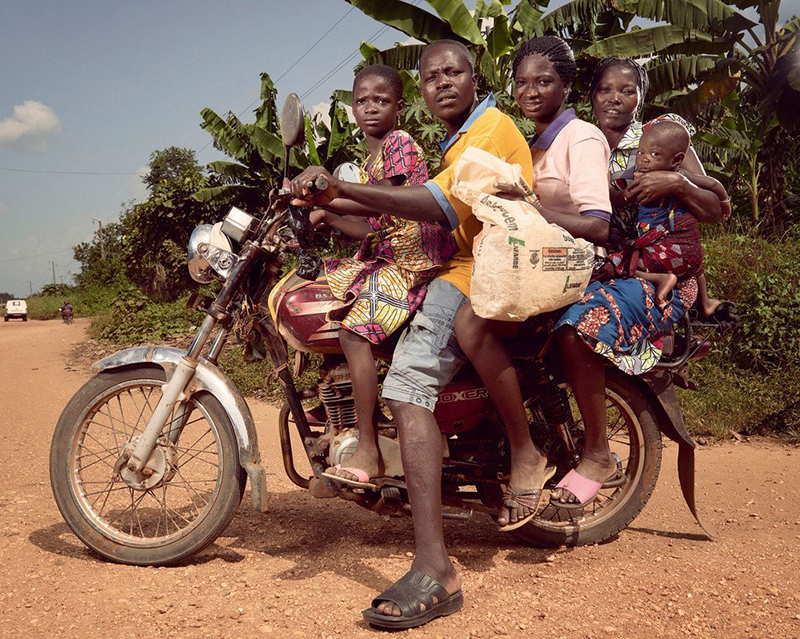 African Road Safety
African Road Safety
Road Safety Week: African nations steer towards reducing deaths
New York: Traffic accidents are the leading cause of death among African youth, so governments across the continent have resolved to drive in a new unified direction, ahead of Road Safety Week, observed 15 to 21 May.
Increasingly grim accident statistics provided the impetus for action, including two bus crashes in Senegal that claimed 62 lives in January. In nearby Côte d’Ivoire, the daily number of fatal road accidents has risen to 46, from just 12 in 2012.
In the world’s region most affected by road crashes, sub-Saharan Africa’s fatality rate is 27 per 100,000 inhabitants. That is three times higher than Europe’s average of nine and well above the global average of 18, according to the UN Economic Commission for Europe (UNECE), which manages 59 of the Organization’s legal instruments on inland transport, including the UN road safety conventions.
Every year, 1.3 million people around the world are killed as a result of road crashes, and millions more are injured, the World Health Organization (WHO) said.
A quarter of world deaths
In Africa, traffic deaths account for about one quarter of the global number of victims, even though the continent has barely 2 per cent of the world’s vehicle fleet, said the UN Secretary-General’s Special Envoy for Road Safety, Jean Todt, who just returned from a visit to the streets and highways of West Africa.
“Africa is particularly affected by the tragedy of road accidents, which is the leading cause of youth mortality,” he said.
Partners switching gears
Meeting with authorities and civil society in Senegal and Côte d’Ivoire, Mr. Todt said the right investment, can save lives.
At the moment, governments, the private sector, and civil society, with help from the UN Road Safety Fund, are partnering in a new project that ultimately aims at reducing traffic deaths and ensuring vehicle safety, UNECE said.
The initiative supports regulating the export and import of used vehicles in Africa, particularly regarding regulations and technical inspections. One of the goals is to import safer and environmentally friendly vehicles in Africa to avoid tragic accidents.
The first harmonized approach in Africa to regulate imported used vehicles, the project, when fully implemented, will have a “significant impact” on the environment, health, and road safety, the agency said.
Recent tragedies spark public outcry
Apart from the deadly Senegal incidents in January, in the same month, in Yamoussoukro, Côte d’Ivoire, a bus accident killed 14 people and injured 70 others, while a similar collision in August 2022 killed 25 people in the north of Abidjan.
These bus accidents have highlighted the obsolescence of fleets of vehicles in both countries alongside a lack of technical control and a failure to comply with highway codes, the agency said.
Curbing unsafe vehicles
Addressing obsolete vehicle fleets requires special attention in West Africa, UNECE said, adding that Senegal and Cote d’Ivoire mainly rely on imports of heavily used vehicles.
In 2016, the average age of the vehicle fleet in Senegal was 18 years, with 40 per cent older than 20 years, according to the UN Environment Programme (UNEP). Senegal had enacted a decree in 2001 limiting the age of imported cars to 5 years, amending it in 2012 to 8 years, UNECE said.
‘Vicious cycle of poverty’
Efforts are also being made to protect the most vulnerable road users, namely pedestrians and cyclists, who are often also the poorest and youngest, the agency reported. Indeed, Africa has the highest proportion of cyclist and pedestrian fatalities, accounting for 44 per cent of the total number of road deaths.
In addition to the human tragedy, road accidents trap countries in a vicious cycle of poverty. According to the World Bank, the cost of road accidents represents eight per cent of Senegal's annual GDP and 7.8 per cent of Côte d’Ivoire’s.
Tackling fake licenses to drunk driving
Drunk driving, speeding, drowsiness, negligence, non-use of seat belts and helmets, and non-compliance with traffic regulations are the main cause of road accidents in Africa, the agency reported.
Other contributing factors included an ageing vehicle fleet in public transport, false licenses, lack of enforcement of penalties, and a dearth of rigorous technical inspections.
Among the solutions to be implemented include the need to strengthen health services for crash victims, and adherence to the African Road Safety Charter and the UN Basic Conventions on Road Safety.
Raising awareness also plays a key role, UNECE said.
Strong new measures
Following the tragic accidents in January, Senegal announced strong measures to make roads safer. This included a national road safety plan, with 22 measures aimed at reducing the number of deaths and serious injuries by at least 50 per cent
Actions span from strengthening road controls to limiting the circulation of public transport vehicles. It also means banning the importation of used tires, providing free technical control in Dakar for transport and goods vehicles, and opening technical control centres across the country.
First traffic police force
In Côte d’Ivoire, new initiatives are strengthening road safety laws and creating a traffic police force. Following several fatal accidents in the north of the country, the Government decided in 2021 to enforce helmet wearing for all cyclists.
Commitments are there, be it in Senegal or in Côte d’Ivoire, UNECE said, adding that what remains is the most difficult part: implementation and measuring progress.
Support Our Journalism
We cannot do without you.. your contribution supports unbiased journalism
IBNS is not driven by any ism- not wokeism, not racism, not skewed secularism, not hyper right-wing or left liberal ideals, nor by any hardline religious beliefs or hyper nationalism. We want to serve you good old objective news, as they are. We do not judge or preach. We let people decide for themselves. We only try to present factual and well-sourced news.







